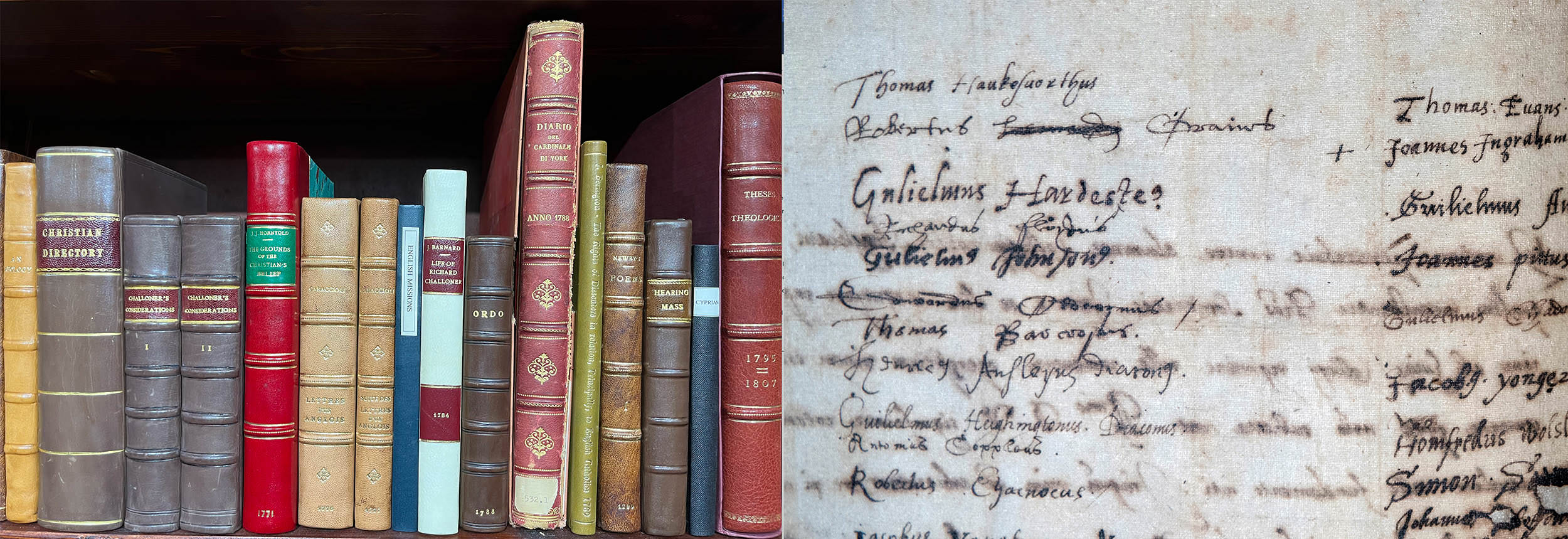Penal laws against Catholics
Item set
Items
-
Catholic recusancy and the Penal Laws, 1603–1707
-
Church and state in Tudor Ireland; a history of penal laws against Irish Catholics, 1534–1603
-
Historical notice of penal laws against Roman Catholics: their operation and relaxation during the past century: of partial measures of relief in 1779, 1782, 1793, 1829, and of penal laws which remain unrepealed, or have been rendered more stringent by the latest so-called Emancipation Act
-
Catholic emancipation tracts, 1826–1829 (31 items)
[1]. Declaration of the Catholic bishops, the vicars apostolic and their coadjutors in Great Britain [2]. An address from the British Roman Catholics to their Protestant fellow countrymen [3]. A letter to the Duke of Wellington on the Catholic claims by J. Doyle [4]. A reply to the charge of Dr. Elrington ... / by Dr. Doyle [5]. Dr. Doyle's letter to Lord Farnham on the second reformation in Ireland [6]. People of England! [7]. Monkish superstition, modern improvements [8]. Triumph of justice and liberty over tyranny and oppression through the influence of the Catholic clergy. [9]. Civil and religious liberty [10]. Happy homes and altars free [11]. Modern method of converting idolaters by bible saints [12]. Address of the Catholics of Ireland to the people of England [13]. A slight view of an ascendancy inquisition [14]. Great Britain and Ireland [15]. A few samples of national disadvantages produced by the Reformation [16]. A slight peep into the church vestry system in Ireland [17]. Specimens of the conversions at Cavan by bible saints [18]. To the people of England [19]. Speech of Mr. Eneas M'Donnell at the British Catholic Association meeting. [20]. Error refuted and truth stated [21]. Conduct of the Irish law church clergy [22]. Ireland, plain facts submitted to the sober sense of Englishmen [23]. Defence of Catholic doctrines by Patrick Spence [24]. Education in Ireland [25]. Address of Catholics of Ireland to the Protestant dissenters of England [26]. Simultaneous meetings in Ireland in the cause of civil and religious liberty [27]. The new Reformation [28]. Protestant Episcopal Church establishment of England and Ireland [29]. The forty-shilling freeholder [30]. National eudcation [sic] [31]. Appeal of the Catholics of Ireland to the people of England.

